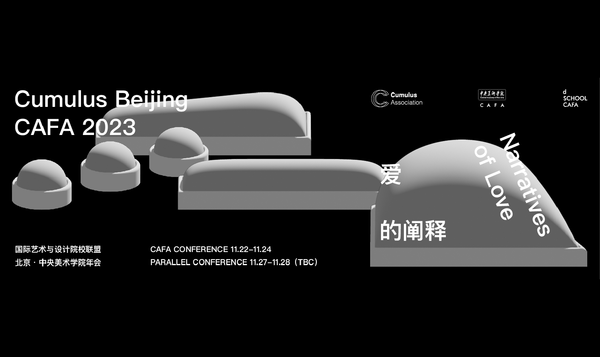Explore the impact of artificial intelligence on the world of work, analysing the transformations, challenges, and new opportunities that AI brings to different professional sectors.

Artificial intelligence and work: how it will change with the AI
Date
15 December 2023
Artificial Intelligence (AI) - the field of computer science that deals with developing systems and algorithms capable of performing tasks that typically require human intelligence - is revolutionising the world of work in every sector, presenting unique challenges and opportunities for professionals, companies and future students.
But how has AI impacted process automation and, consequently, the world of work and education? Let’s find out together!
Process automation
Artificial intelligence is transforming the work landscape, offering challenges and opportunities. The fear of being replaced in jobs, needing new skills, and managing ethical implications have impacted all sectors. At the same time, AI offers extraordinary opportunities such as increased operational efficiency, new role creation, and innovative solutions.
Process automation has undoubtedly been one of the most significant changes for workers and companies. In recent years, AI has moved from simple automated tasks to complex systems capable of learning, adapting and making autonomous decisions.
There have been and still are many benefits of this innovation, which have entirely reshaped the way companies in every sector operate. These include:
- Increased operational efficiency
One of the main benefits of process automation is undoubtedly increased operational efficiency. Automation speeds up the execution of tasks, minimising human error and improving the timeliness of operations.
- Reducing costs
Eliminating repetitive tasks through process automation has led to a significant reduction in long-term operating costs. This financial freedom can enable companies to reinvest resources in innovation and growth.
- Focus on creative activities
Automation frees workers from monotonous and repetitive tasks, allowing them to focus on more creative activities. This change in perspective stimulates the ability to solve problems and reinvent themselves in other activities.
However, the adoption of process automation through AI also brings with it several significant challenges, including:
- The (possible) loss of jobs
As some tasks become increasingly automated, there is a risk of losing traditional jobs. Over time, automation could replace established roles, decreasing job opportunities in specific sectors.
- The demand for new skills
Integrating AI requires developing new skills, which imposes continuous transformation, pushing workers to cultivate advanced skills to thrive in an increasingly competitive and technology-driven professional environment.
- Ethical and regulatory issues in working with AI
The management of artificial intelligence raises significant ethical issues, such as the accountability of automated decisions and the need for transparency in decision-making processes. These considerations are crucial to ensure a fair, transparent and morally responsible future of work, and only through the implementation of appropriate regulations will it be possible to shape a sustainable working environment.
Although process automation brings considerable benefits, it is essential to approach the transition with a balanced awareness of the positive and negative aspects. Overcoming these challenges through continuous training and an ethical approach allows us to harness automation for a more efficient and responsible working future.
AI and the creation of new jobs
It is now clear that artificial intelligence is no longer just an agent of change but also a catalyst for creating new job opportunities. New roles are emerging thanks to the integration of AI into a wide range of everyday activities, creating a wide range of opportunities in previously unimaginable fields.
Indeed, with the increasing complexity of this technology, there is a significant demand for experts who can lead the development of highly complex algorithms and systems. Roles such as AI engineers and data scientists are becoming crucial to exploit the full potential of these technologies.
However, AI’s impact is not limited to technical fields. Even professionals with more creatively oriented jobs will need to acquire a basic understanding of artificial intelligence to keep up with the evolving world of work. For instance, user experience-oriented courses of study are emerging as a critical resource and are already proving very popular among tomorrow’s workers. These courses offer practical skills to understand and implement AI in creative contexts, preparing professionals for a future in which collaboration with artificial intelligence will be increasingly widespread and necessary.
AI and vocational training
Vocational training is a pivotal factor in meeting the challenges and capitalising on the opportunities this technological change is bringing to the world of work.
Continuing training enables workers to quickly adapt to new roles and take full advantage of the opportunities created by AI, preparing professionals to thrive in an ever-changing environment.
IED considers itself a benchmark in offering highly specialised courses designed to provide in-depth, practical training in AI technologies and related skills, including through workshops and highly vertical projects.
The innovative methodologies adopted by IED, integrating theory with practical learning, enable participants to apply the acquired knowledge immediately, effectively preparing them for entry into the world of work.
But that’s not all: direct collaboration with industry is a fundamental pillar of all courses offered by IED, helping to ensure that study programmes are highly relevant and aligned with current labour market dynamics.
Investing in vocational training is essential to navigating the AI era successfully, and this investment translates into a tailor-made educational pathway designed to shape professionals ready to meet the challenges and embrace the opportunities of the future of work.
Want to discover all the secrets of AI?
For a cutting-edge education that meets the needs of AI, discover the courses IED offers and prepare yourself for a successful future.
AI is a subject of study in many of our training courses, including:
- Master's Program in User Interface Design and AI
- Master's Program in Innovation and Digital Production for Cultural Activities
- Summer Course in Fotografia e AI
- Summer Course in Creativity and Artificial Intelligence
- Master's Program in Information Design
Image credits: What if project by Giulia Gravina, IED Milano, presented during Milan Digital Week 2023








